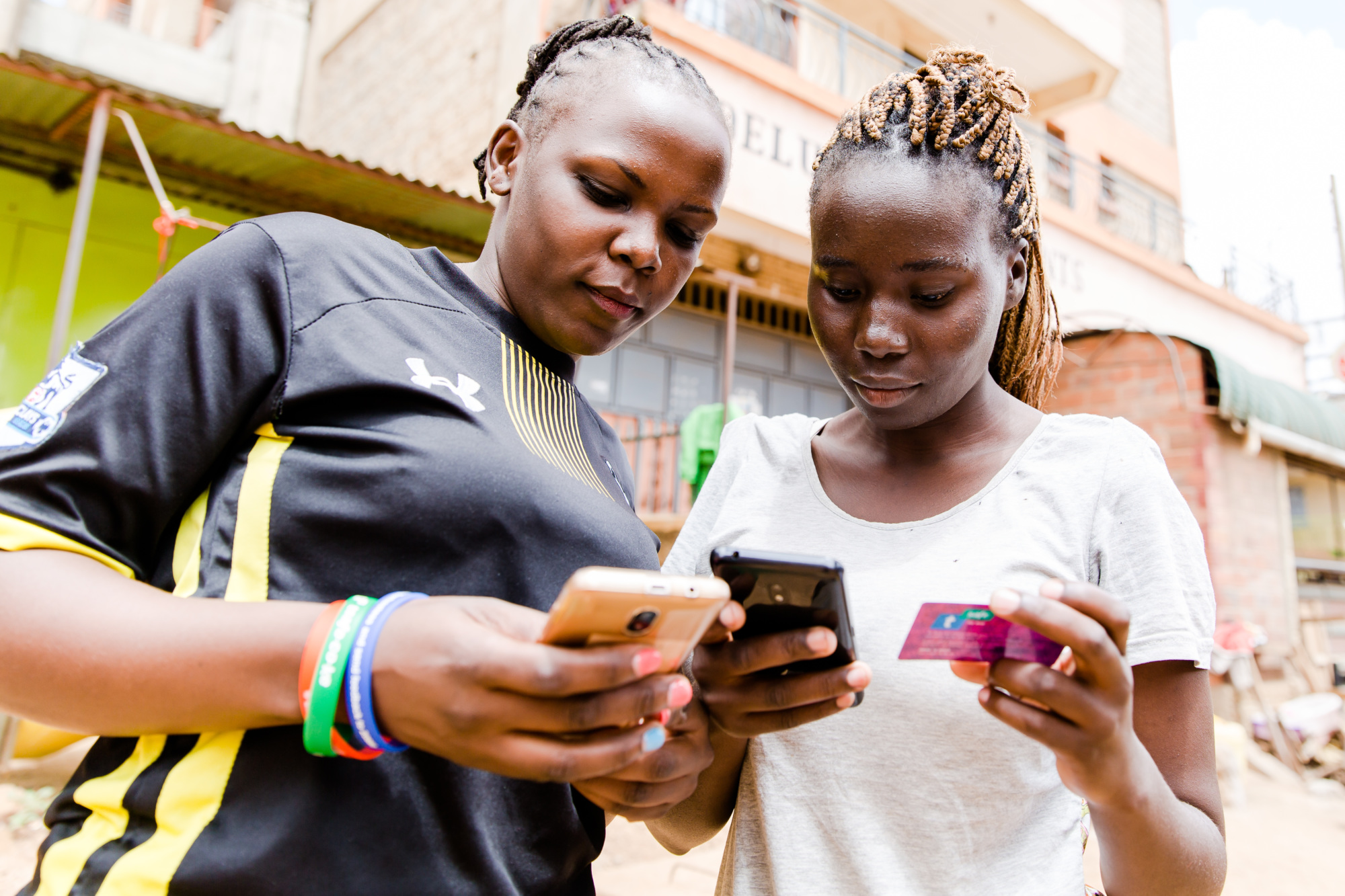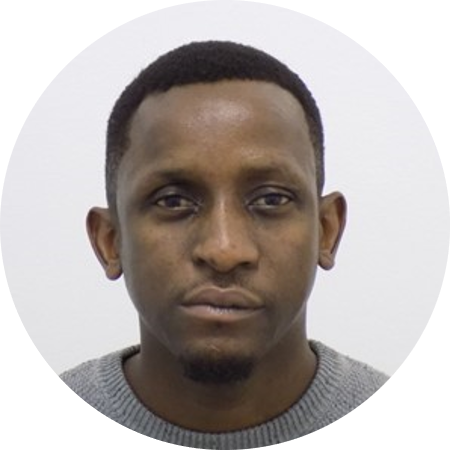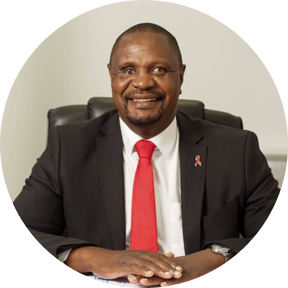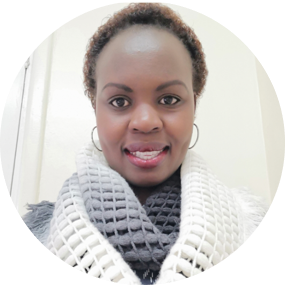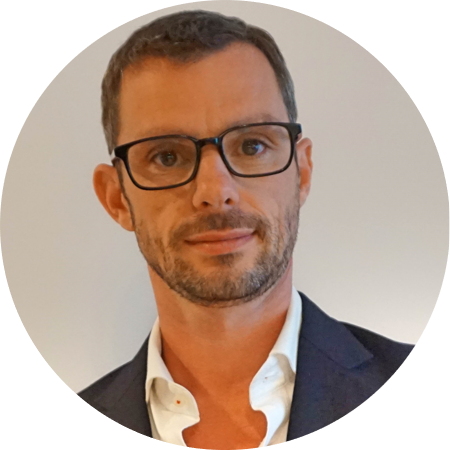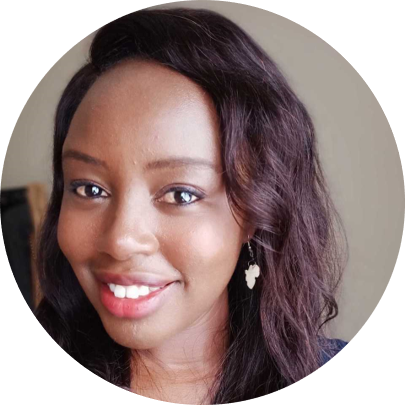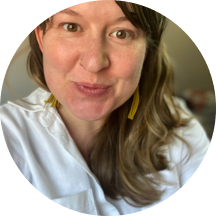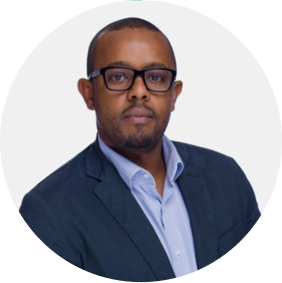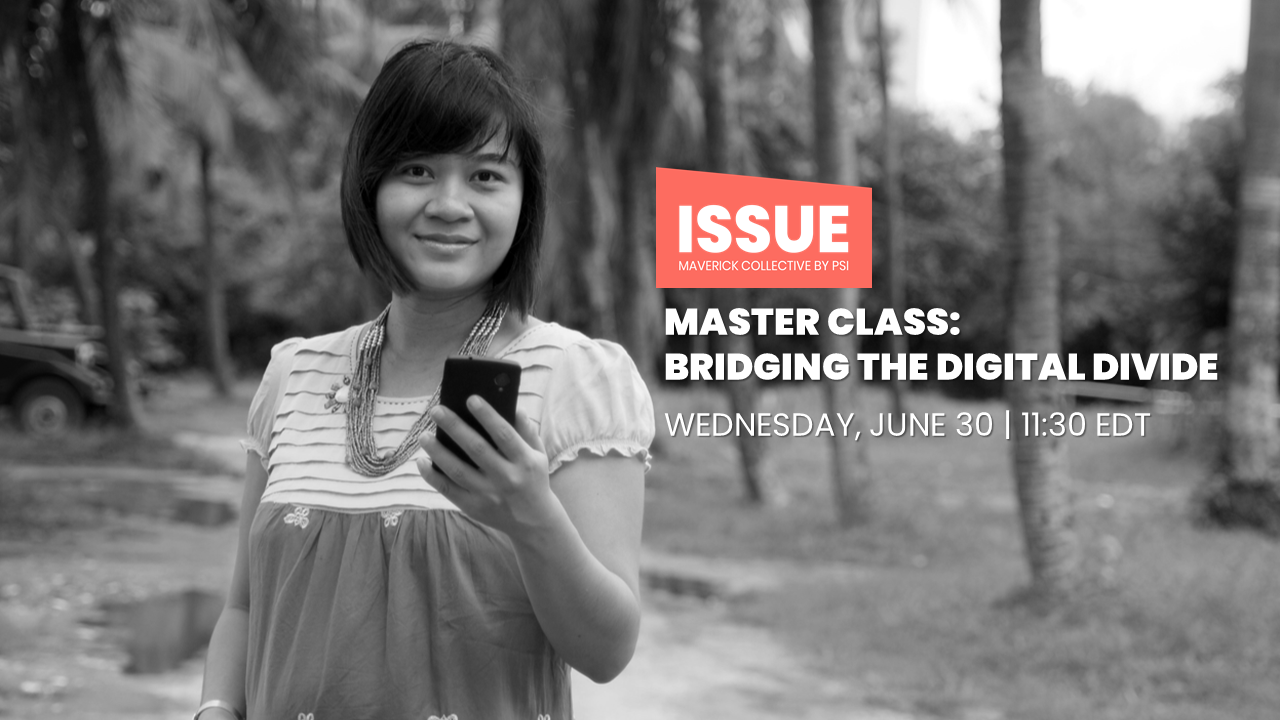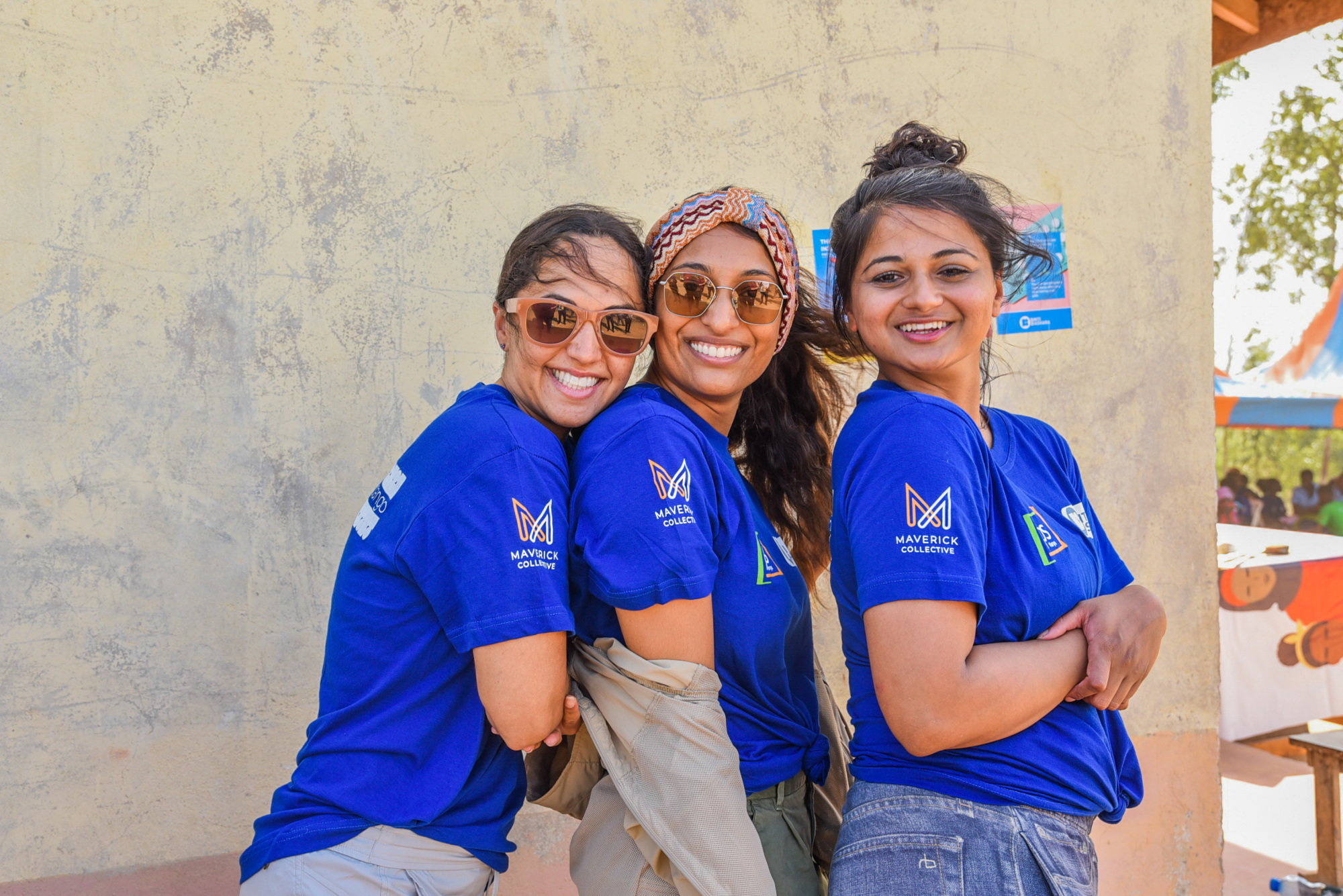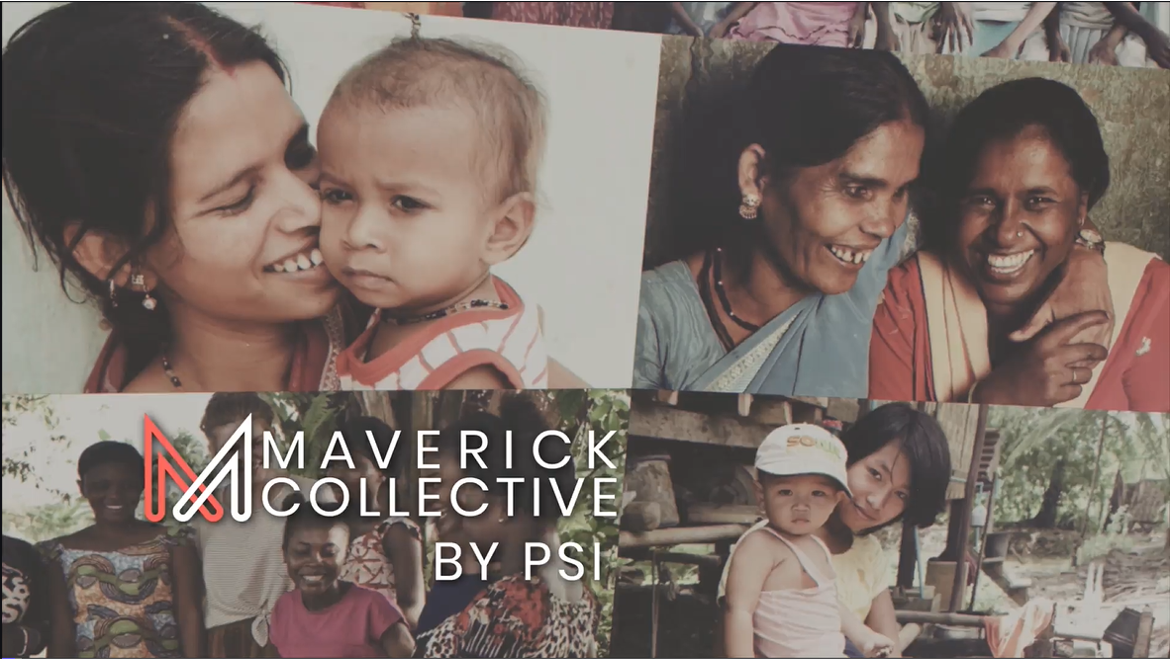
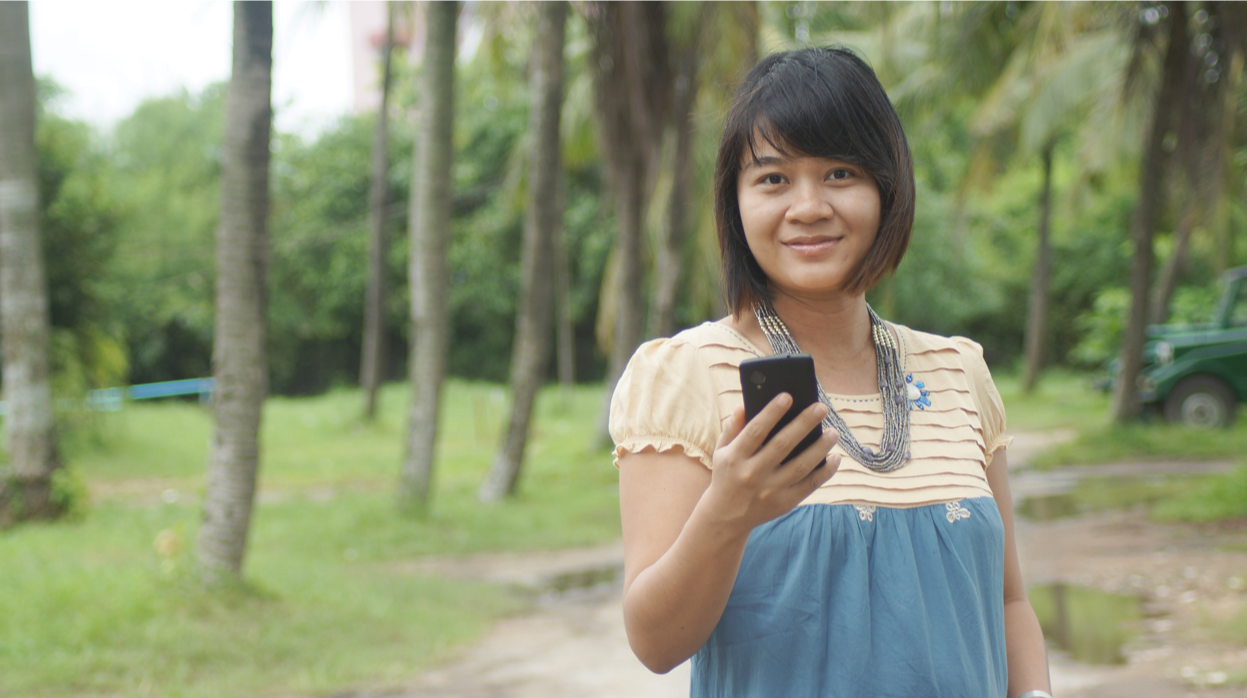
Got Digital?
REDEFINING HOW WE DELIVER HEALTHCARE
From the Desk of
It is quite a thrill to introduce you to our June ISSUE: Got Digital? Digital Health offerings have provided an opportunity to shift “the starting point of care” to wherever the patient is and bring us even closer to Sara.
Dear Maverick Community,
It is quite a thrill to introduce you to our June ISSUE: Got Digital? Digital Health offerings have provided an opportunity to shift “the starting point of care” to wherever the patient is and bring us even closer to Sara.
This edition will get you up close and candid with the project teams and two members who have funded digital infrastructure that facilitates Sara to be in control of her health choices.
We feature a transformational pilot project in Zimbabwe in collaboration with the National HIV & AIDS Council that utilizes an electronic medical record system to link healthcare facilities with Community Health Workers (like some that you met in the last ISSUE!).
You will also meet the enthusiastic “Connecting with Sara” project team who share the winding and impactful journey on strengthening the digital infrastructure of PSI’s global digital health operations.
Sign up for Master Class, scheduled for June 30th, and enjoy the conversation on expanding digital health to bridge the digital divide so that Sara, who may not have access to the internet or a smart phone, can thrive.
Ready to go digital? Have fun with Heart Homework, where we explore the intersection between technology and health, give consumers agency over their health and bring us closer to Universal Health Coverage.
Indulge and get digital!
My best,
Christine Oduor
Sr. Program Manager, Digital Health & Monitoring, PSI

EPISODE 3 | got digital?
Tune in to Episode 3 of Maverick Beat where, over the course of two segments, we spotlight Community Healthcare Systems Strengthening (CHSS) in Zimbabwe and Connecting with Sara, a project strengthening the digital infrastructure of PSI’s global digital health operations. You can explore more in the content below including English’s and our Member’s “journals,” stories from Sara, photos, and more.

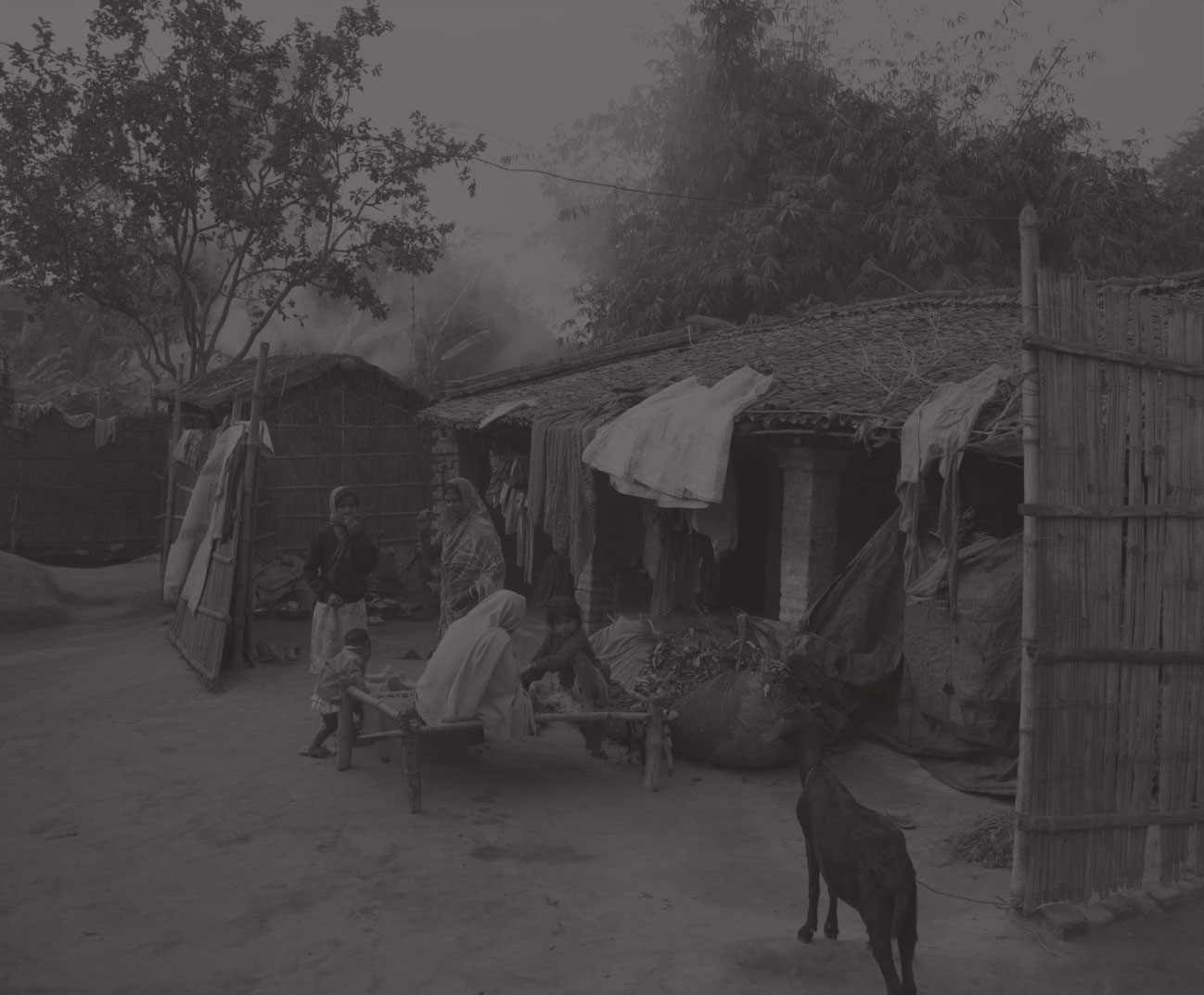
Improving Care and Services for People Living with HIV in Makoni District, Zimbabwe
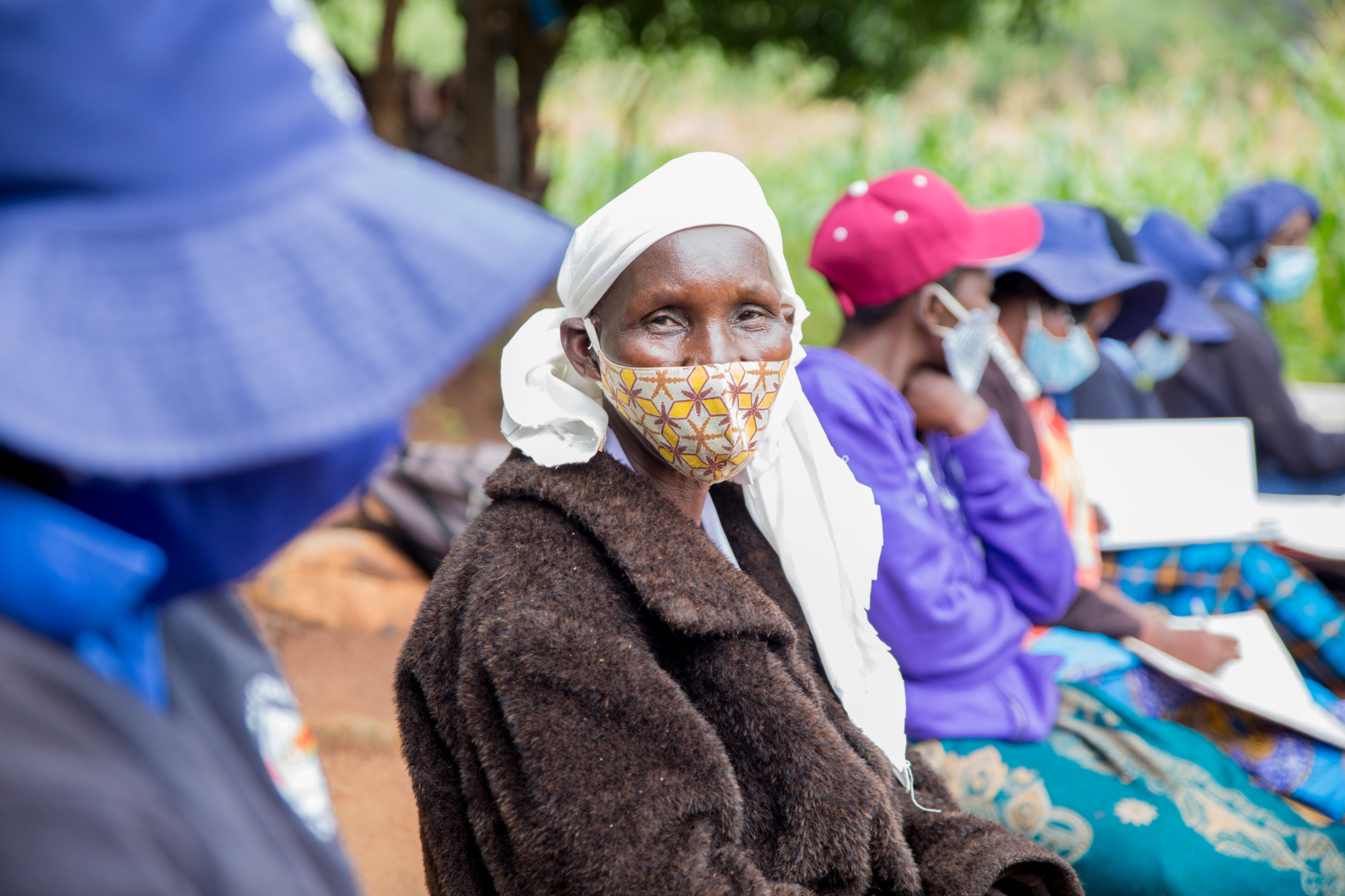
Maverick Beat | Ep.3 Part 1: CHSS 18 mins
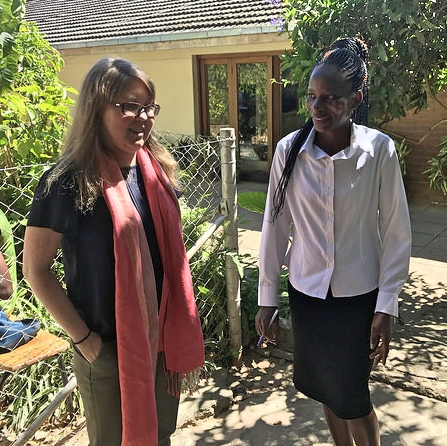
I want a t-shirt that tells people I am a peer educator that I can wear when I am out on the weekends.Her name is Phiona. She would be considered an “outlier” by data standards. An outlier is a person or thing that differs from all other members of a group or set. Fiona is a peer educator, HIV positive, and a sex worker.
Sitting across from her on a hot day in Zimbabwe she slowly began to tell me about a life that was full of grit and patience. She talked about her HIV and sex work as if it was commonplace, she was not ashamed, but proud that her experiences led her to become a peer educator and impact the lives of women like her.
Behind Phiona is a set of data that I look at on a computer screen. Her age, gender, date of birth, HIV status, her role as a peer educator, her role as a sex worker, this is information I can see and count and analyze, but Phiona is the person I met.
This is an excerpt from Huffington Post. To read the full article, click here.
- 1.4 million people in Zimbabwe are living with HIV
- ~ 50% of people living with HIV receive antiretroviral therapy (ART)
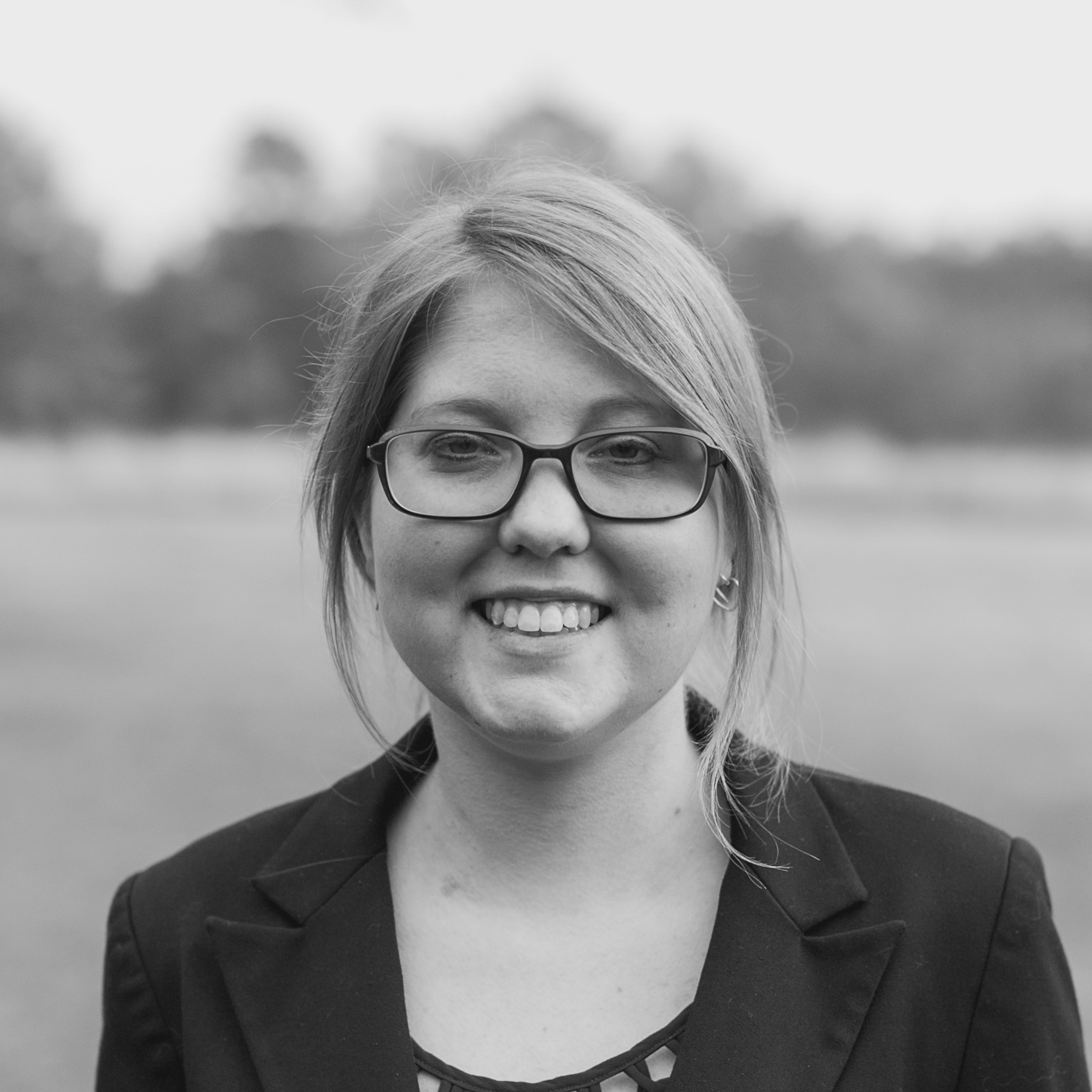
Humanizing data to design a better community health system should be considered paramount to truly make a difference in communities.English Sall
Zimbabwe is one of the worst affected countries by the HIV epidemic in sub-Saharan Africa. There are currently 1.4 million people living with HIV (PLHIV) in the country and about half are receiving antiretroviral therapy (ART). In partnership with the Ministry of Health and Child Care, we implemented the Community Health Systems Strengthening program in seven clinics in Makoni using community-level systems as the backbone of the response to relieve the burden on facilities and the health delivery system. The project set out to address issues in the treatment cascade by training and equipping community health workers with efficient tools to identify HIV positive individuals, initiate them on treatment, and retain them in lifelong care at the scale needed to control the epidemic.
My favorite song
These amazing Community Health Workers sang this to us as we were leaving a visit. I don’t know what song it is but it was beautiful.
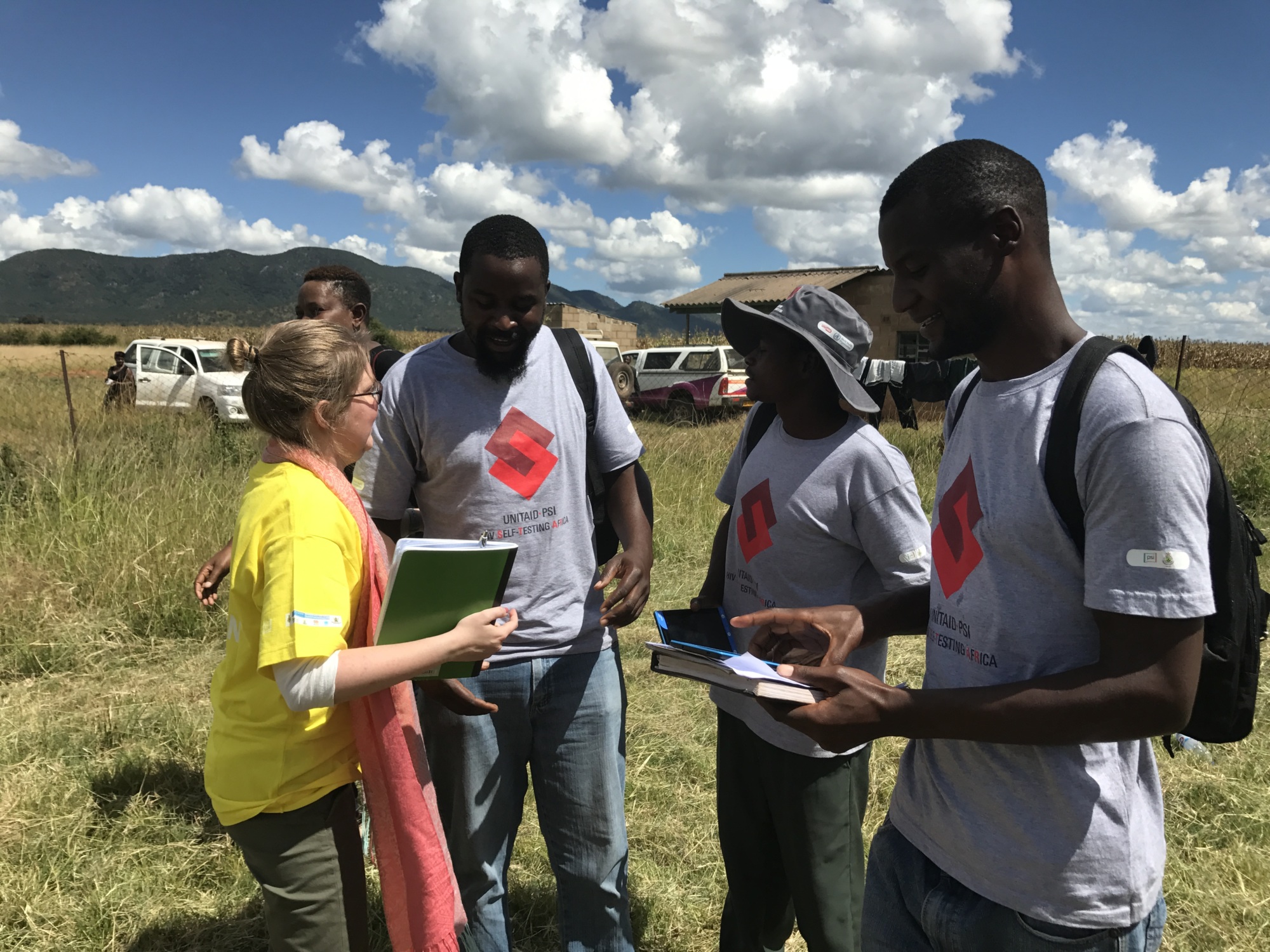
A memorable experience
This photo, of doing a focus group of Community Health Workers. They were so excited about learning the tools and having the tablets because they were saying that these skills and education and tools are things they can learn that no one can take from them.
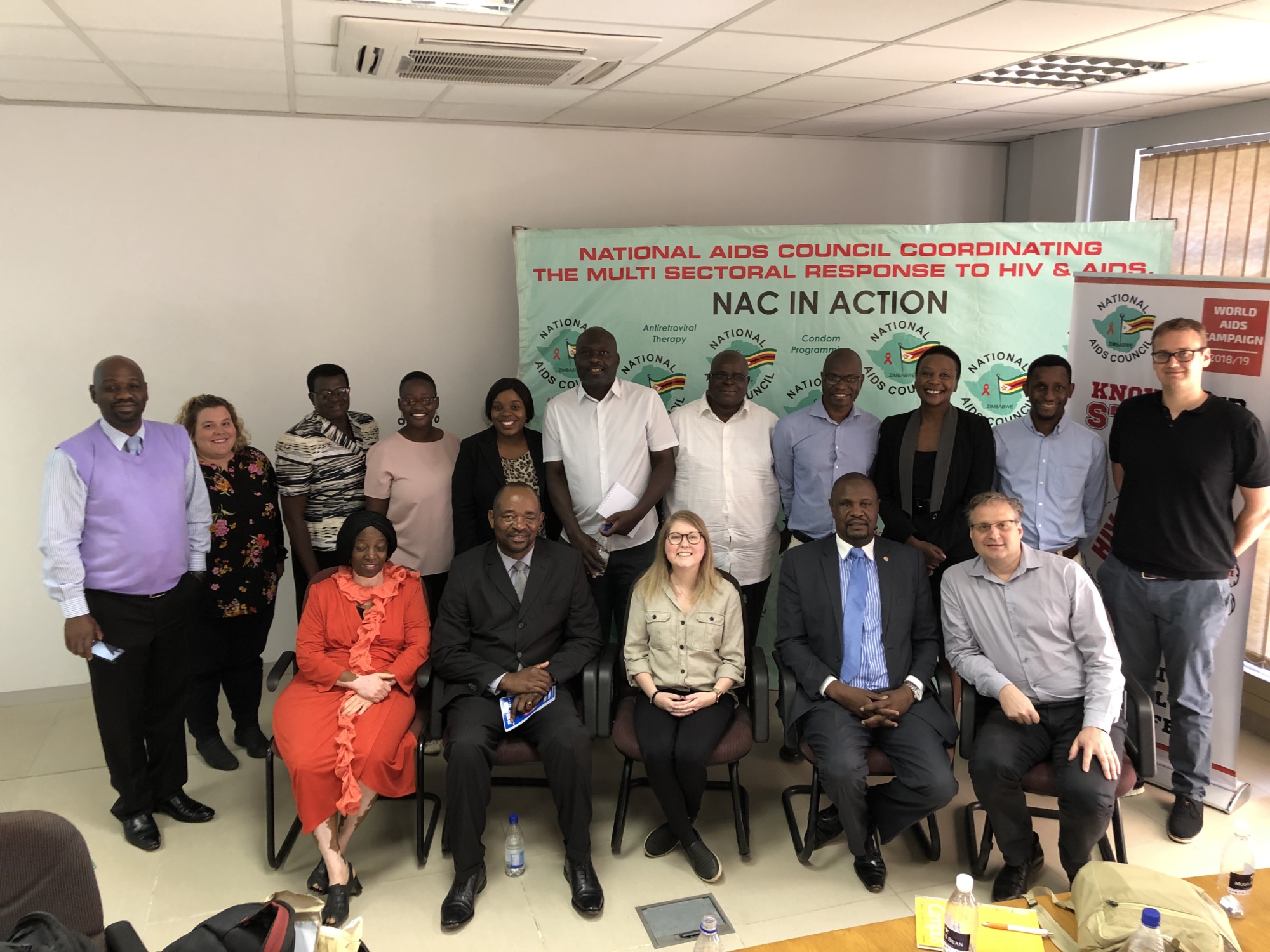
What captured my heart
The people and the team. I have made such great friends and I miss them and I can’t wait to see them when I go back.
1/3
Optimizing PSI’s Technology Architecture to Improve Sara’s Health and Well-Being
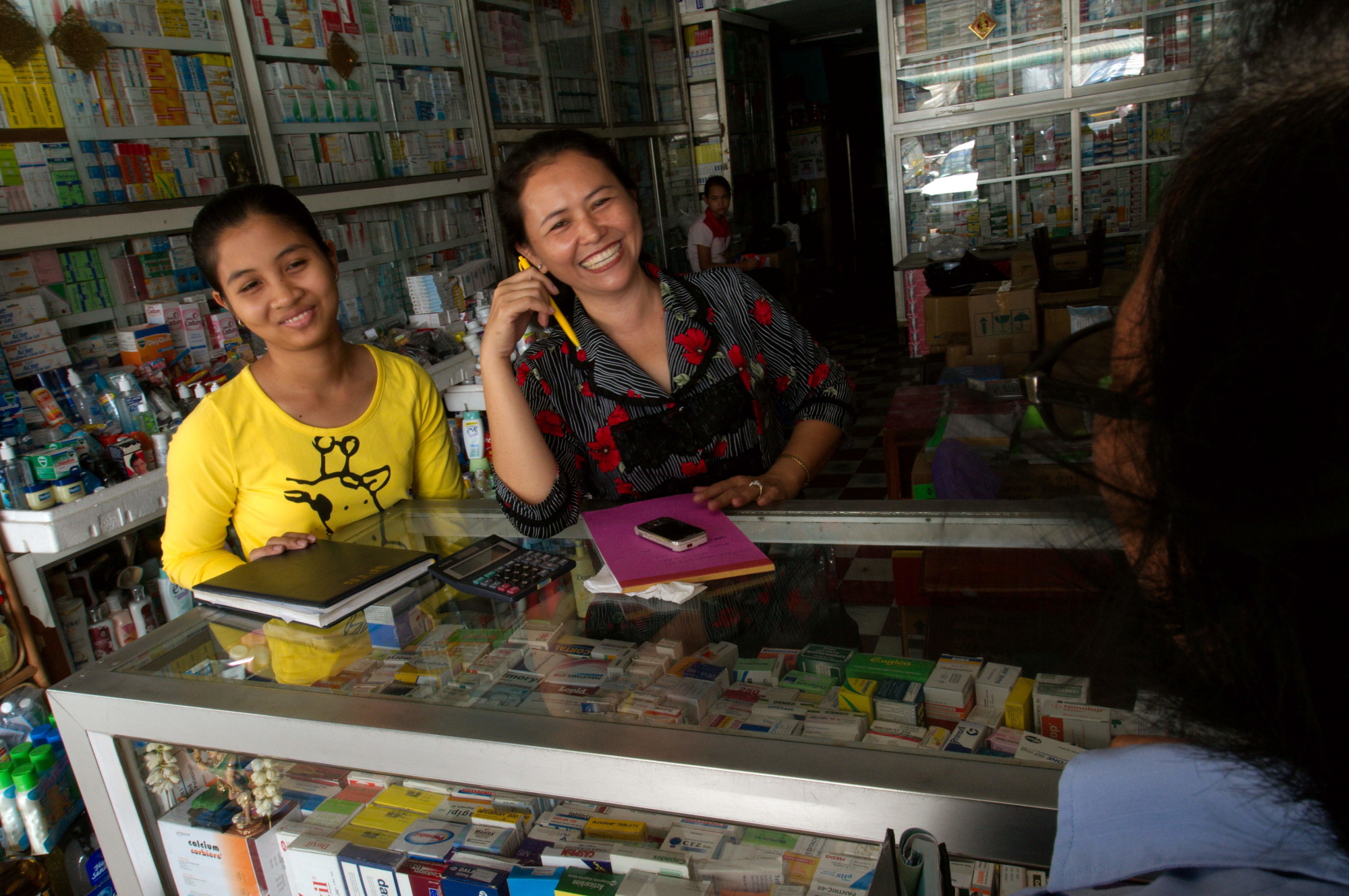
Maverick Beat | Ep. 3 Part 2: Connecting with Sara 16 mins
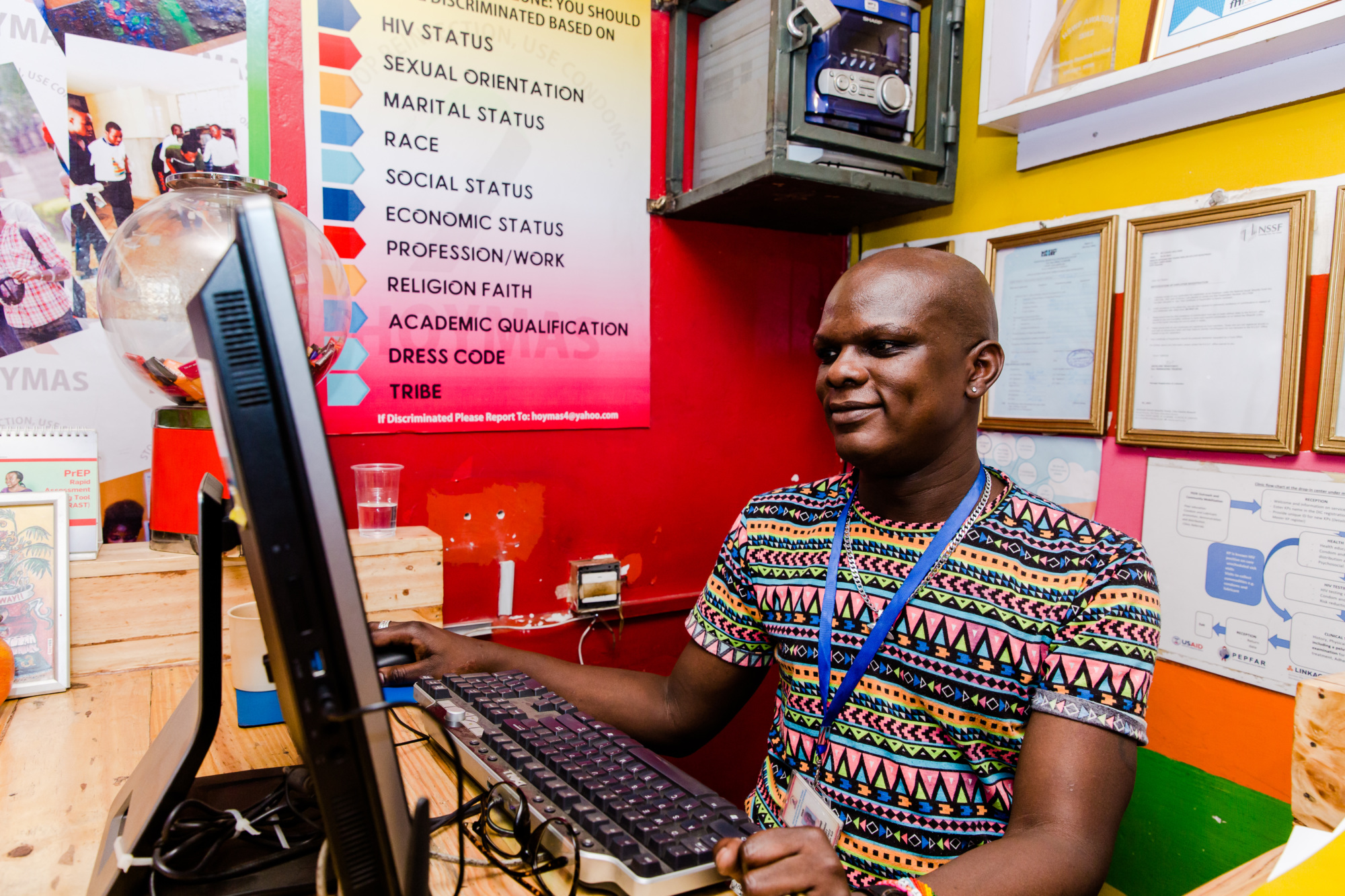
The platform enables me to learn as I work, unlike other training modalities where we have to leave our facilities for a week and go to learn.By Javan Waita, PS Kenya and Martin Dale, PSI
In pre-pandemic times, PS Kenya and PSI often provided in-person training for healthcare workers to update their skills in delivering health services. However, in a world of physical distancing, we had to rethink this model.
Working closely with the Ministry of Health, we designed and implemented a remote capacity-building solution using our existing digital platforms to deliver certified COVID-19 training to over 1,000 private sector health workers.
This solution presents a good opportunity to address the current skills gap associated with COVID-19 and also offers a cost-effective path to scaling up health provider support in the long term.
- + 1.3 Million clients reached through Connecting with Sara
- 17 countries now use the web services developed through the project
In 2017, PSI began a series of mobile health initiatives to bring healthcare closer to Sara by using a tool she already had access to, her phone. This innovative approach required a critical investment to modernize PSI’s technology infrastructure for flexibility, scalability, and performance. With the help and investment from a Maverick Collective Member, “Connecting with Sara” moved PSI from supporting a couple of pilots to creating an infrastructure that now supports the back-end of our global services and allows us to safely and efficiently support Sara’s healthcare needs across platforms, wherever she might be. The digital tools and infrastructure developed through the project now support PSI programs in 17 countries, in a wide range of programmatic areas from COVID-19 response training for health providers in Kenya, supporting field outreach activities for male circumcision for HIV prevention in Zimbabwe, transforming the delivery of injectable contraceptives in Mozambique, and providing digital self-care tools for consumers for on-demand access to quality reproductive health information in Latin America.
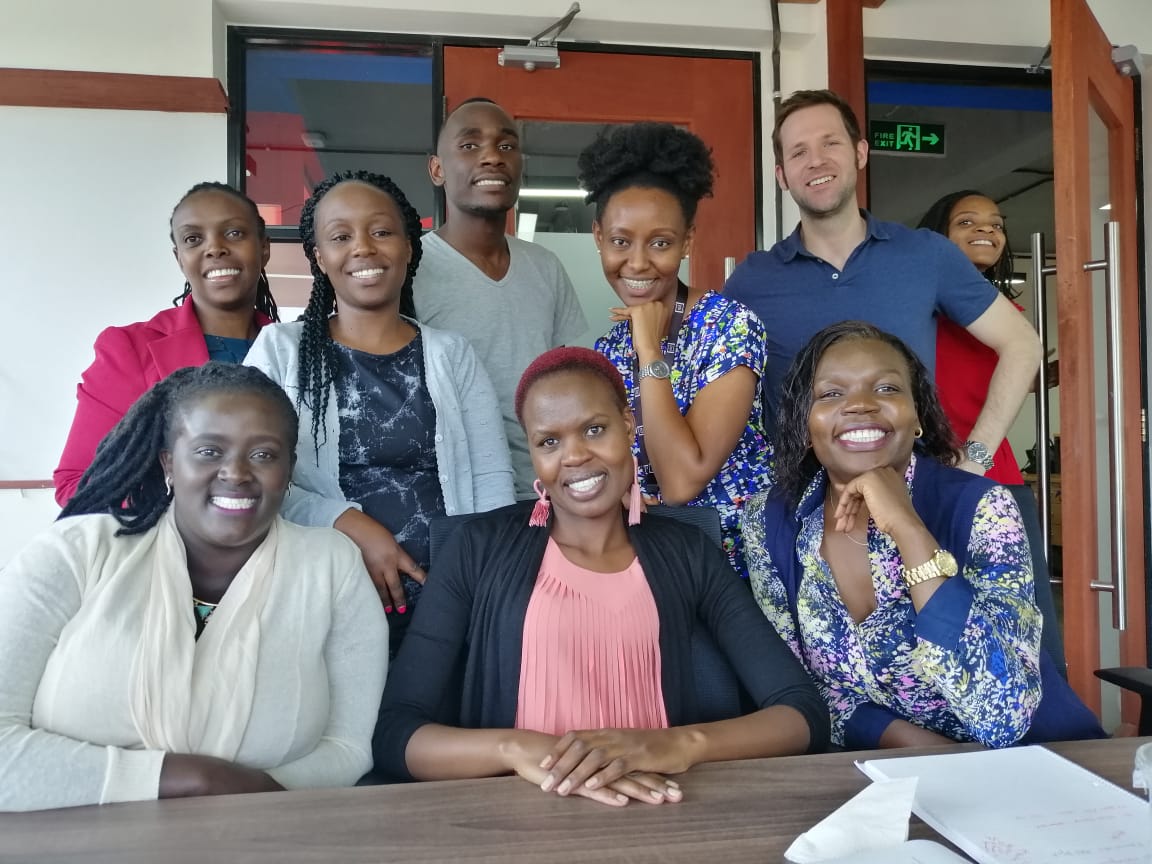
Teamwork makes the dream work
The team is outstanding. Their technical and personal skills are excellent, true team members with a shared vision. They are passionate about what they do and are keen, open and enthusiastic about transforming how data was handled within CWS and the impact that this would have on Sara. They were patient with me when I was grappling with the nuances of charities, made me laugh endlessly and we shared a love of G+T’s and beer!

What I learned
I knew nothing about working with a charity, my background is mostly commercial. I have learnt about how charities work and how difficult it is for them to long-term plan, because of the mainly short-term nature of funding from donors. I have met some other wonderful Maverick Collective members and developed co-funding and friendships with them. Biggest take-away is that I now see the impact of providing “risky”, grass-roots funding of projects that “no one else” may fund. This is a cornerstone of my funding vision now.
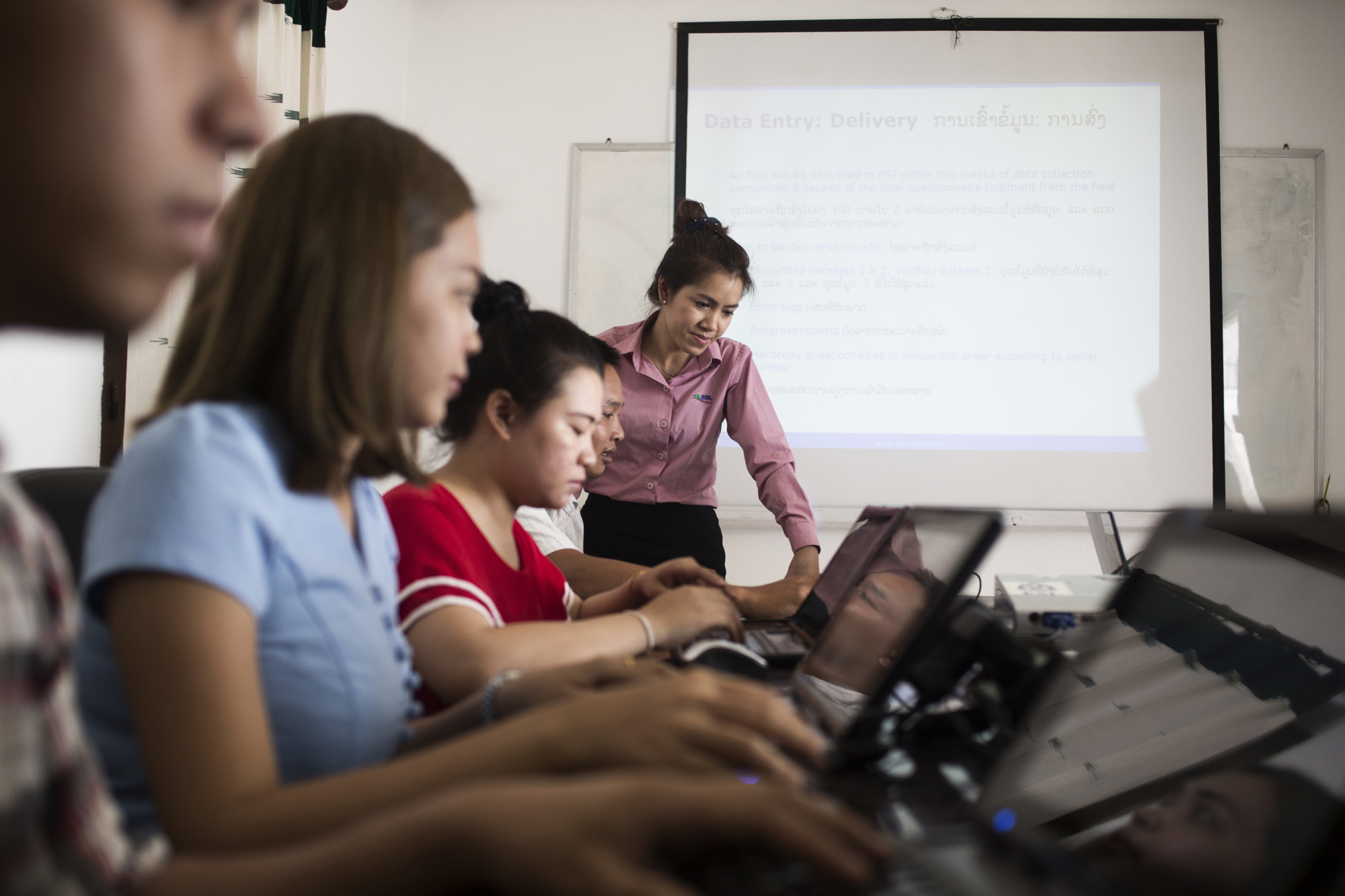
Multiplying impact
This is my area of technical expertise and I want to apply this within a project. It was an area that would not usually be funded, as it is for “core infrastructure”. From my experience, I know that getting the infrastructure systems functioning well can bring real positive impact within an organization. I got to know Malcolm and when I knew he would be involved, that sealed the deal for me.
1/3
Bridging the Digital Divide
COVID-19 proved the power of digital solutions in accessing healthcare. it helped people stay connected to care without having to leave the safety of their homes.
Yet, roughly 3 billion people around the world lack access to critical digital tools that can save lives. especially in times of crisis. How do we bridge this digital divide, meet more consumers wherever they may be, and continue to digitally innovate?
In this Master Class we will discuss how to bring quality healthcare closer to consumers in broadband-limited communities while ensuring no one is left behind.
Heart Homework
The digital divide goes beyond having access to a device. It includes digital literacy, digital skills, quality and affordability of connection. Consider who is being left behind, even in high-income countries, when services go digital with the resources below:
-
READ: Women's Rights Online
Closing the digital gender gap for a more equal world.
-
LEARN: The Gender Digital Divide
How USAID is working toward a global digital ecosystem for all
-
WATCH: The U.S. Digital Divide - Explained
It’s estimated that in the U.S. today, there are approximately 42 million people without a reliable internet connection. Geographic challenges play a role, but economic factors are just as crucial.
-
EXPLORE: Why I Fight To Close The Digital Divide?
Commissioner Clyburn on why access to the internet is not just a privilege but a fundamental human right.
